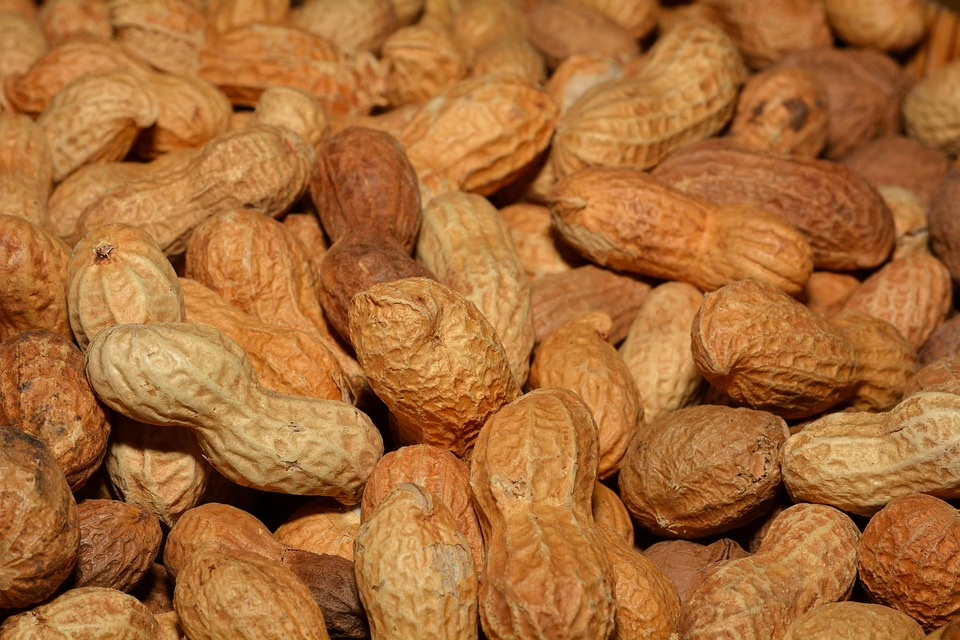From Crunchy to Chewy: The Ultimate Guide to Nutritious Snacks
Introduction
In today’s fast-paced world, snacking often becomes a part of our daily routine. As we juggle work, family, and personal time, the need for convenient, nutritious snacks has never been more essential. However, with an overwhelming variety of options on the market, it can be challenging to find snacks that are not just appetizing but also promote health and wellness. This guide aims to explore the intricacies of nutritious snacks, covering everything from crunchy to chewy varieties, their health benefits, and how to make informed choices.
The Importance of Snacking
1. Fueling the Body
Snacks play a crucial role in keeping energy levels stable throughout the day. They can provide essential nutrients that are sometimes hard to consume in three main meals. Healthy snacking can help enhance alertness and improve concentration, making it easier to tackle tasks effectively.
2. Curbing Hunger
Eating small, nutritious snacks can help combat hunger between meals, preventing overeating later during larger meals. This is particularly important for maintaining a healthy weight.
3. Supporting Nutritional Goals
Snacks can be a creative opportunity to add more nutrients to your diet. By selecting snacks wisely, you can increase your intake of fruits, vegetables, whole grains, and plant-based proteins.
Types of Nutritious Snacks
Snacks can be categorized mainly into two types: crunchy and chewy. Each type has unique benefits and uses.
Crunchy Snacks
1. Nuts and Seeds
Nuts and seeds are versatile snacks that offer healthy fats, protein, and fiber. They promote satiety and can be eaten raw, roasted, or spiced for added flavor.
- Almonds: High in vitamin E, magnesium, and antioxidants.
- Chia Seeds: Loaded with omega-3 fatty acids, fiber, and protein.
2. Whole Grain Chips
Opt for whole grain or baked versions of chips, which are lower in fat and higher in fiber compared to traditional potato chips.
- Popcorn: A whole grain snack that is low in calories when air-popped and can be seasoned with various spices.
3. Vegetables and Dips
Fresh, crunchy vegetables paired with healthy dips can be both satisfying and nutritious.
- Carrot and Celery Sticks: Pair these with hummus or a yogurt-based dip for added flavor and nutrients.
Chewy Snacks
1. Dried Fruits
Dried fruits are rich in vitamins and minerals, offering a quick source of energy. However, it’s important to choose unsweetened varieties to avoid added sugars.
- Raisins: Good source of iron and potassium.
- Apricots: High in vitamin A and fiber.
2. Protein Bars
Homemade or store-bought protein bars can be nutritious options, but it’s crucial to read the ingredients to avoid added sugars and preservatives.
- Peanut Butter Bars: Can be made by blending oats, peanut butter, and natural sweeteners.
3. Whole Grain Cookies
Look for cookies made with whole grains and natural sweeteners. These can satisfy your cravings while still giving you a fiber boost.
- Oatmeal Cookies: Contain fiber and can be combined with nuts or dried fruits for added nutrition.
Health Benefits of Nutritious Snacks
Snacking mindfully can bring a plethora of health benefits:
1. Nutrient Density
Nutritious snacks provide more nutrients relative to their calorie count. This means you can consume a small amount and still receive various vitamins and minerals.
2. Weight Management
Integrating healthy snacks into your diet can aid in weight management. They help control cravings and stabilize blood sugar levels.
3. Enhanced Performance
Whether you’re exercising or working, snacks can enhance performance by keeping energy levels consistent.
Tips for Choosing Healthier Snacks
1. Read Labels
Always check ingredient lists and nutrition labels. Look for snacks that contain whole foods with minimal processing and avoid those high in added sugars and unhealthy fats.
2. Portion Control
Even healthy snacks can contribute to weight gain if consumed in excess. Measure out portions to avoid overeating.
3. Be Mindful of Trends
Nutritional trends often lead to confusion. Just because something is labeled as “healthy” doesn’t mean it is free from unhealthy ingredients. Stick to whole, minimally processed foods as your first choice.
DIY Snack Ideas
Creating your own snacks can be a fun and rewarding process. Here are a few ideas to get you started:
1. Trail Mix
Ingredients:
- 1 cup nuts (almonds, walnuts)
- 1 cup dried fruit (raisins, cranberries)
- 1 cup dark chocolate chips (optional)
Instructions: Mix all ingredients together and store in an airtight container.
2. Energy Bites
Ingredients:
- 1 cup oats
- 1/2 cup nut butter
- 1/3 cup honey
- 1/4 cup chia seeds
Instructions: Combine ingredients in a bowl, roll into small balls, and refrigerate.
3. Homemade Granola
Ingredients:
- 3 cups rolled oats
- 1/2 cup honey or maple syrup
- 1/2 cup nuts
- 1/2 cup dried fruits
Instructions: Mix, bake at 350°F for 20 minutes, and enjoy!
Storage and Shelf Life
Storing your snacks properly can extend their shelf life:
1. Airtight Containers
Use airtight containers to keep snacks fresh. Glass or BPA-free plastic containers work well.
2. Refrigeration
Some snacks, like homemade protein bars or nut-based treats, may require refrigeration to maintain freshness.
3. Freezing
Dried fruits, nuts, and even some granola can be frozen to extend their shelf life. Just make sure to label containers with the date of freezing.
The Role of Snacks in Various Diets
1. Vegan Diet
Plant-based snacks can be incredibly nutrient-dense. Options like roasted chickpeas, nut butters, and fruit smoothies can provide balance and satisfaction.
2. Gluten-Free Diet
Snacks such as rice cakes, vegetable crisps, and yogurt with gluten-free granola help maintain a gluten-free lifestyle without compromising on flavor.
3. Keto Diet
Low-carb snacks like cheese crisps, avocados, and nut butter can keep you in ketosis while satisfying cravings.
Conclusion
In the quest for nutritious snacks, variety is the spice of life. Whether you prefer crunchy munchies or chewy delights, there’s a world of options available to suit your taste and nutritional needs. By making mindful, informed choices, snacks can enhance your health and wellness journey significantly. So, the next time you feel a hunger pang, reach for one of these nutritious snacks and feel good about your choice.
References
For the proper citation of the sources, please consult relevant academic journals, nutrition websites, or cookbooks that provide insights into healthy eating practices and nutritious snack options. It is essential to refer to primary research studies or reviews published in reputable journals to support the claims made regarding nutrition content and health benefits.
This structured guide offers valuable insights into nutritious snacking, balancing educational content with practical applications. For anyone looking to enhance their snacking habits, this guide serves as the perfect resource.


























Add Comment